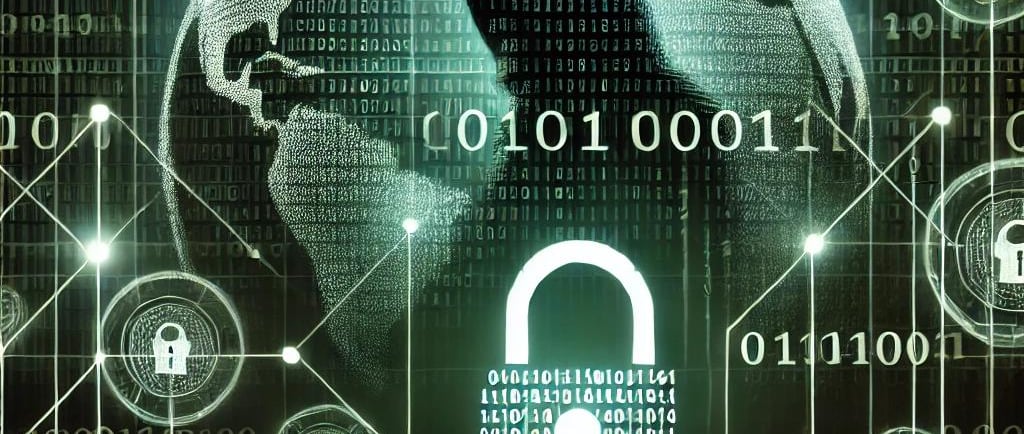Achieve Successful Digital Transformation and Manage Cyber Crises Effectively
The Dark Web: Myths, Risks, and Realities for Businesses
This article demystifies the dark web, explaining its role in data breaches and the risks it poses to businesses. It emphasizes legal, security, and ethical considerations. It advocates for proactive cybersecurity measures, ethical practices, and the use of trusted resources to understand the dark web without direct access. The article provides practical advice for prevention, incident response, and responsible navigation of cybersecurity challenges.
1/7/20253 min read


The Dark Web: Myths, Risks, and Realities for Businesses
In the world of cybersecurity, few topics spark as much curiosity and misunderstanding as the dark web. Often portrayed as a shadowy marketplace where stolen data is freely exchanged, the dark web is far more chaotic and unreliable than many imagine.
For businesses, understanding its dynamics is essential, but accessing it directly must be done cautiously—and always within legal and ethical boundaries.
What is the Dark Web?
The dark web refers to parts of the internet that are not indexed by standard search engines and require specific software like the Tor browser to access. It is often used for anonymous communication and activities but is also a hub for illegal marketplaces where stolen data, malware, and other illicit goods and services are traded.
Why should businesses care?
When a data breach occurs, stolen information often ends up on the dark web. For businesses, this means sensitive customer data, employee credentials, or intellectual property could circulate among cyber-criminals. This underscores the importance of robust cybersecurity measures to prevent breaches and minimize damage if they occur.
The risks of accessing the Dark Web
Despite its intrigue, directly accessing the dark web comes with significant risks:
Legal risks: simply visiting certain dark web sites can violate laws, depending on your jurisdiction. Downloading stolen data or engaging with illicit marketplaces can lead to severe legal consequences.
Security risks: the dark web is rife with malware. Visiting these sites without proper precautions can compromise your systems and data.
Ethical concerns: businesses may be tempted to retrieve their stolen data. Very few are expected to exploit the dark web to gather information about competitors. Such actions not only breach ethical standards but can also result in legal repercussions and reputational damage.
Why ethical boundaries matter
It is crucial to emphasize that businesses should never access the dark web to gain an advantage over competitors by retrieving their stolen data or uncovering trade secrets. Such practices violate ethical principles and undermine trust in the marketplace. The focus should remain on securing your own systems and data.
How to safely learn about the Dark Web
If you want to educate your team or yourself about the dark web, there are safe and ethical ways to do so:
Use curated resources: many cybersecurity firms, such as Webz.io and E-Tech, offer insights and approved screenshots of dark web marketplaces. These resources provide valuable learning opportunities without requiring direct access.
Threat Intelligence Platforms: services like Recorded Future and DarkOwl aggregate and analyze dark web data, giving businesses actionable insights while staying within legal and ethical boundaries.
Focus on prevention: instead of reacting to breaches by exploring the dark web, invest in strong cybersecurity measures to prevent breaches from happening in the first place. Regular vulnerability assessments and employee training can be very effective.
The chaos of the Dark Web
One of the most surprising aspects of the dark web is its lack of organization. Many assume it operates like a sophisticated underground network, but the reality is quite different. Data is scattered across fragmented marketplaces and forums, making retrieval difficult and unreliable. This highlights the importance of focusing on prevention rather than attempting to recover stolen data after the fact.
Practical steps for businesses
Monitor Dark Web activity through trusted partners: partner with cybersecurity firms that specialize in dark web monitoring. They can alert you if your data appears without exposing your team unnecessarily.
Invest in cybersecurity awareness: educate your employees about phishing attacks, credential security, and other common threats to minimize the risk of a breach.
Prepare Incident Response Plans: develop and regularly update your incident response plan. Conduct tabletop exercises to ensure your team is ready to respond swiftly and effectively.
Conclusion: stay informed, stay ethical
The dark web is a dangerous landscape. For businesses, it is essential to approach it with caution, focusing on ethical practices and proactive cybersecurity measures. By staying informed through reliable resources and prioritising prevention, businesses can navigate the complexities of the digital age responsibly and securely.
For more insights on cybersecurity and ethical risk management, feel free to contact us to discuss how we can help secure your business.
